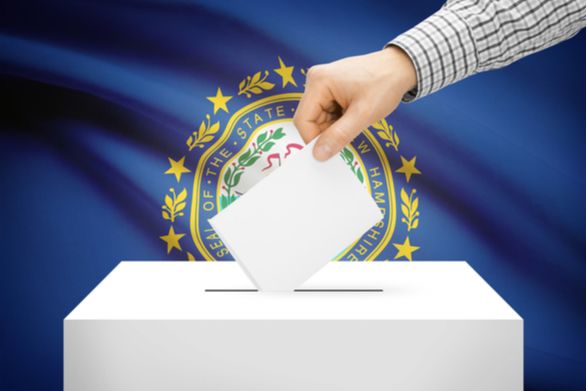New Hampshire legislators are fighting back against efforts to reduce that state’s power in presidential elections.
In January, state representatives filed legislation that would make it illegal to release New Hampshire popular vote totals until after the Electoral College has met and fulfilled its constitutional duty.
The legislation is a defensive move against states that have adopted the National Popular Vote Interstate Compact (“NPVIC”). States that have signed on to the compact promise to give all of their electoral votes to the presidential candidate who receives the most votes nationwide — even if a majority of that state’s voters chose somebody else. Although compacting states will continue to participate in the Electoral College, NPVIC will effectively render the institution a formality.
The New Hampshire legislators who introduced the measure understand that electing the president by nationwide popular vote would vastly reduce the Granite State’s political power. New Hampshire is a state of only 1.3 million people. But, under the Electoral College system, this purple state's 4 electoral votes matter, and candidates are forced to pay attention to the needs of New Hampshire voters and compete for their votes. Without the Electoral College, New Hampshire voters would be irrelevant. Candidates would bypass the state completely in order to pander to the wishes of voters in New York, Los Angeles, and other major metropolitan areas. New Hampshire's unique voice would, therefore, be drowned out by the rest of the country.
New Hampshire House Bill 1531 attempts to stop NPVIC in its tracks. By refusing to release the state’s popular vote count, New Hampshire (particularly if it is joined by other states) can prevent compacting states from ascertaining which candidate received the most votes nationwide until after the Electoral College has met. As Electoral College expert Tara Ross explains, they are able to do this because there, in fact, exists no official national tally: American presidential elections are conducted state-by-state, and any national vote count is based on the sum total of the numbers released by each of the 50 states and the District of Columbia.
Although federal law requires states to report vote tallies to the United States Archivist “as soon as practicable after the conclusion of the appointment of the electors in such State,” Ross argues that “‘as soon as practicable’ doesn’t occur until after the meetings of the Electoral College when constitutional institutions are under attack.”
By its terms, the NPVIC only takes effect when states with a combined 270 electoral votes (the number needed to win the presidency in Electoral College) have joined. As of today, sixteen jurisdictions (with a combined total of 196 electoral votes) have passed the NPVIC.
New Hampshire is fighting back before it’s too late.
Learn more about our Electoral College system HERE, HERE, and HERE.


